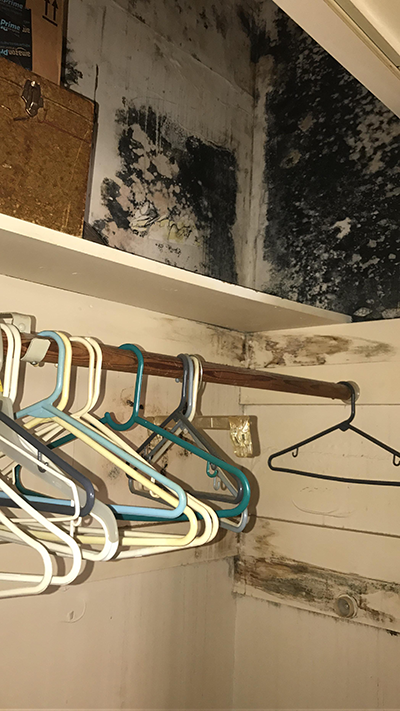 Air conditioning units in South Florida are regular targets for mold growth because they accumulate and retain moisture at just the right temperature. If your
Air conditioning units in South Florida are regular targets for mold growth because they accumulate and retain moisture at just the right temperature. If your
property was built more than 15-20 years ago, other parts of your home may be more vulnerable to mold infestation than usual.
Molds are microscopic organisms belonging to the fungi family that reproduce through airborne spores and can propagate on almost any surface. They often thrive in damp, humid environments and are “very common” in buildings and homes, according to the Florida Department of Health.
“Southeast Florida’s climate is ideal for hidden mold growth, especially in the A/C and ducting,” said Dr. Gary Rosen, a Florida-licensed building contractor and accredited mold remediation instructor.
Mold types such as aspergillus, penicillium and stachybotrys, also known as “toxic black mold” and “the silent killer,” are associated with an array of health risks, including respiratory difficulties, fatigue, immune suppression, chronic nasal congestion, sinusitis, eye irritation, rashes, eczema, enhanced allergy symptoms and, in some cases, even death.
Hotspots for mold growth listed by the Centers for Disease Control and Prevention include: air conditioning units, crawlspaces, attics, behind walls that house plumbing, stacks of damp substances like newspapers or cardboard boxes, garages, leaky windows, under carpeting, underneath sinks and behind or beneath refrigerators.
Experts say that homes which originally used window-mounted or sleeve A/C units that were later converted to central air and had no soffit vents and/or improper ventilation are more prone to have condensation problems within their ductwork. Faulty ductwork and improper ventilation in attics and crawlspaces can create a build-up of moisture that leads to mold growth, overheating of the property and fiberglass dust floating in the air.
“At best, your electric bill is high because hot air and humidity isn’t being allowed to exit your home’s attic,” said Marty Katz, a state-certified mold inspector and remediator with more than two decades in the field. “At worst, every room in your property can become cross-contaminated with harmful mold. More specifically, attic contamination is something that we see on a day to day basis.”
Affordable, effective solutions are available, Katz says. His company, Miami Mold Specialist, recently began outfitting home attics with state-of-the-art solar-powered ventilation that forcibly ejects warm, moist air to prevent mold and mildew growth and significantly stifle wood rot. With zero operational cost, an approximate one-hour installation time and no additional electrical hookup required, there is no reason not to install this system.
“If you wake up stuffy but your sinuses clear up on vacation, there is probably hidden mold in your AC and/or ducting which should not be cleaned by typical duct cleaners who aren’t state-licensed mold remediators,” said Rosen. “Hidden mold, especially in A/C and ducting, not only causes the well-known sinus problems and itchy eyes, but is a leading cause of fibromyalgia.”
If you suspect your home may be harming you due to mold and other airborne contaminants, contact a company with state-licensed mold remediation technicians immediately.
For more information, call 305-763- 8070 or visit MiamiMoldSpecialists.com.



